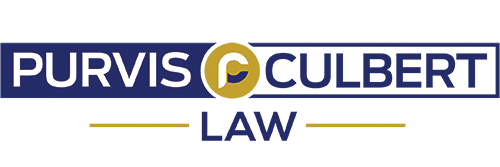(why you should choose your Power of Attorney wisely)
Rise in Power of Attorney Theft
There has been a rise in the financial abuse of the elderly in recent years. Here are some recent articles from the Toronto Star and McLean’s. In mid-September, 2014, a Belleville, Ontario woman who held a power of attorney for property was charged for misappropriating $10,000 from her elderly parents. Here is an article from Niagra this week regarding this story.
Not only is misuse of a power of attorney a breach of the attorney’s duties to the donor, but it is illegal under section 331 of the Criminal Code of Canada., which states as follows:
Every one commits theft who, being entrusted, whether solely or jointly with another person, with a power of attorney for the sale, mortgage, pledge or other disposition of real or personal property, fraudulently sells, mortgages, pledges or otherwise disposes of the property or any part of it, or fraudulently converts the proceeds of a sale, mortgage, pledge or other disposition of the property, or any part of the proceeds, to a purpose other than that for which he was entrusted the power of attorney.
Regardless of these laws, police have noted that power of attorney theft is underreported. (see “Power of attorney theft underreported, police say”, CBC news , text available here . There are many reasons why this is likely the case:
- For the most part, people holding a power of attorney are unsupervised.
- A donnee of a power of attorney is likely acting when the donor is mentally incompetent. This creates an inherent potential for mismanagement and abuse (see Ann Soden, Advising the Older Client, Markham: LexisNexis Canada, 2005) at 112 & 113.
- Power of attorney theft is complicated and difficult to explain to authorities (more difficult to prove than straightforward theft).
Protection from Misuse of a Power of Attorney
How can people protect themselves from misuse of a power of attorney for financial affairs? Here are some general suggestions:
- The grantor of the attorney should pay close attention to the donnee’s personal characteristics. According to Ontario estate lawyers, Kimberly Whaley, Amy Cull and Ian Hull, the most important characteristics are honesty, integrity and accountability. (“Financial Abuse, Neglect and the Power of Attorney” (paper delivered at the Canadian Conference on Elder Law / World Study Group on Elder Law 2010, October 28, 2010),online: Whaley Estate Litigation <http://whaleyestatelitigation.com/blog/2010/10/financial-abuse-neglect-and-the-power-of-attorney/ >.
- It is important to have conversations with your attorney while you are healthy about your financial wishes and the decisions you would normally make regarding your financial affairs.
- The donor may wish to choose a power of attorney that has not previously filed for bankruptcy or is not currently an undischarged bankrupt. In some jurisdictions, an undischarged bankrupt is disqualified from acting as a power of attorney (Manitoba, Saskatchewan). If someone has shown struggles with financial management, this may be a red flag that the individual is more likely than others to run into difficulties while using a power of attorney.
- It may be helpful for the donor of a power of attorney to express his/her wishes to other family members, who may act as a “check and balance” for the attorney.
Conclusions
A donee of a power of attorney has a duty to carry out your wishes according to your instructions. If you have not given instructions, then the donee must act reasonably and in your best interests. The donee has a duty of utmost good faith (fiduciary duty) to act in your benefit. Therefore, appointing an attorney is a decision not to be taken lightly. After all, a donee of a power of attorney becomes your “agent” and goes out into the world and makes decisions for you.
Should you have any specific questions regarding your situation or for legal advice, contact us.
